I need to os.walk from my parent path (tutu), by all subfolders. For each one, each of the deepest subfolders have the files that i need to process with my code. For all the deepest folders that have files, the file 'layout' is the same: one file *.adf.txt, one file *.idf.txt, one file *.sdrf.txt and one or more files *.dat., as pictures shown.
 My problem is that i don't know how to use the os module to iterate, from my parent folder, to all subfolders sequentially. I need a function that, for the current subfolder in os.walk, if that subfolder is empty, continue to the sub-subfolder inside that subfolder, if it exists. If exists, then verify if that file layout is present (this is no problem...), and if it is, then apply the code (no problem too). If not, and if that folder don't have more sub-folders, return to the parent folder and os.walk to the next subfolder, and this for all subfolders into my parent folder (tutu). To resume, i need some function like that below (written in python/imaginary code hybrid):
My problem is that i don't know how to use the os module to iterate, from my parent folder, to all subfolders sequentially. I need a function that, for the current subfolder in os.walk, if that subfolder is empty, continue to the sub-subfolder inside that subfolder, if it exists. If exists, then verify if that file layout is present (this is no problem...), and if it is, then apply the code (no problem too). If not, and if that folder don't have more sub-folders, return to the parent folder and os.walk to the next subfolder, and this for all subfolders into my parent folder (tutu). To resume, i need some function like that below (written in python/imaginary code hybrid):
for all folders in tutu:
if os.havefiles in os.walk(current_path):#the 'havefiles' don´t exist, i think...
for filename in os.walk(current_path):
if 'adf' in filename:
etc...
#my code
elif:
while true:
go deep
else:
os.chdir(parent_folder)
Do you think that is best a definition to call in my code to do the job?
this is the code that i've tried to use, without sucess, of course:
import csv
import os
import fnmatch
abs_path=os.path.abspath('.')
for dirname, subdirs, filenames in os.walk('.'):
# print path to all subdirectories first.
for subdirname in subdirs:
print os.path.join(dirname, subdirname), 'os.path.join(dirname, subdirname)'
current_path= os.path.join(dirname, subdirname)
os.chdir(current_path)
for filename in os.walk(current_path):
print filename, 'f in os.walk'
if os.path.isdir(filename)==True:
break
elif os.path.isfile(filename)==True:
print filename, 'file'
#code here
Thanks in advance...